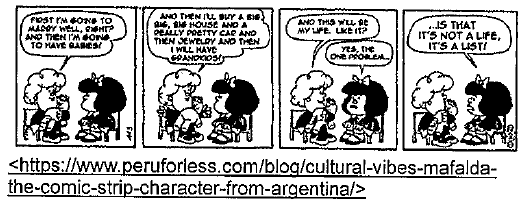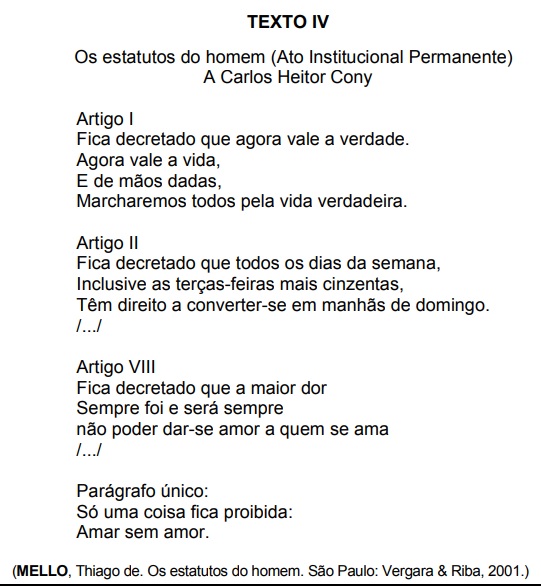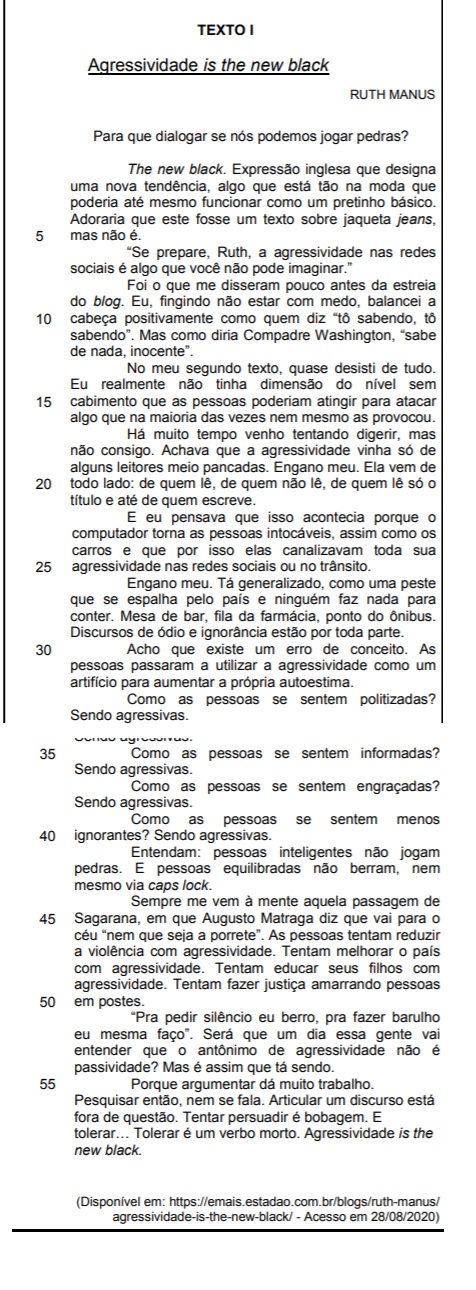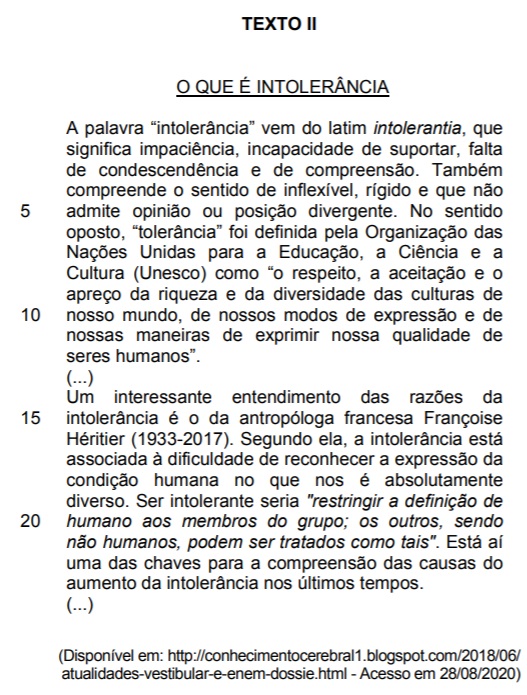Questões Militares
Foram encontradas 15.354 questões
Resolva questões gratuitamente!
Junte-se a mais de 4 milhões de concurseiros!
John: "I am about to fall asleep. I need to stay awake!" Katie: I"______ you some coffee."
Complete the dialogue with the right option.
He feels like eating a lot of ice cream on Friday.
Change the sentence to Simple Past tense and negative form. Then, mark the correct option.

Mark the correct sentence that explains the comic strip.
"During meditation, you focus your attention and eliminate the stream of jumbled thouqhts."
The adjective "jumbled" (underlined in the sentence) can be replaced without change in meaning by:
"Even outside the zone, many businesses and schools have suspended activities and sporting events have been canceled."
All the underlined words are considered Countable nouns. Mark the option in which all the nouns are considered Uncountable.
"All authorities have acted quickly and with great caution."
Mark the option that contains a sentence with the same type of adverb underlined in the sentence above.
"Italian officials have cut short the Venice Carnival as they try to control what is now the worst outbreak of the coronavirus in Europe."
Mark the adjective that forms its Superlative the same way as the underlined word.



- Em uma coletânea intitulada Os cem menores contos brasileiros do século, Cíntia Moscovich, ao ser convidada para produzir um conto com até cinquenta palavras, escreveu:
“Uma vida inteira pela frente. O tiro veio por trás.”
Considerando os textos I, II e III apresentados nesta prova e o microconto acima, assinale a alternativa que apresenta um comentário correto acerca deles.
I. No primeiro quadrinho, em “Não tolero gente intolerante!”, o verbo tem o sentido de apreciar, gostar de. Em “intolerante”, o “in” é um prefixo de negação. I. Cada personagem, no fim das contas, se revela intolerante, de algum modo. A tirinha poderia ser resumida com a seguinte expressão: “Atire a primeira pedra quem não tem pecado.” III. No quadrinho três, o sentido do verbo “tolerar” é suportar, aguentar; o tom da discussão é elevado, conforme podemos ver nas exclamações da tirinha. IV. “Putz”, “cara” e “tá” revelam o coloquialismo da discussão. O emprego da conjunção adversativa “mas” deixa evidente a oposição de argumentos da tirinha. Estão corretas
